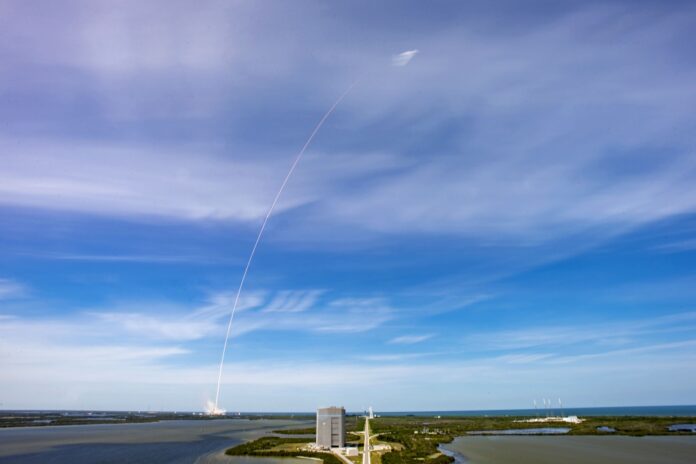
Chinese defence journal makes the case
Chinese military scientists have called for the development of anti-satellite (ASAT) technology to neutralise the danger’s presented by western ideas being delivered to its people by SpaceX’s Starlink wireless broadband service. The enthusiasm for counter culture space wars is likely to escalate, according to a report in The Register.
It cites an article published in April by Chinese journal Modern Defense Technology in which Ren Yuanzhen leads a team of authors from the Beijing Institute of Tracking and Telecommunications Technology who threaten that Starlink satellites can significantly enhance the US military’s operational communications capabilities. In reaction they call for techniques to monitor and track them to be developed and, beyond that, the powers of soft and hard killing methods for some satellites.
The article was translated by David Cowhig, a former US State Department Foreign Service Officer who retired after ten years at the US Embassy in Beijing as a science and technology officer.
“While providing commercial services, this giant constellation of satellites harbours great potential for military applications, posing a great challenge to our existing situational awareness and traditional defence capacity,” said the article.
“Therefore, it is necessary to actively respond in various aspects, especially to develop and build situational awareness equipment and systems in a targeted manner, and vigorously develop various new disposal means, so as to maintain and obtain space advantages in the fierce space game,” it concluded.
Starlink’s constellation of 2,400 low-Earth orbit (LEO) satellites was first launched in 2018 but the broadband services offered by the satellites is increasingly worrying Chinese authorities says the report. In December 2021, Chinese representatives at the United Nations complained that Starlink satellites had two close encounters with the China Space Station on July 1 and October 21, 2021 and reminded the US of its obligations under the 1967 Outer Space Treaty to avoid such dangers.
But Starlink’s significance as conflict-catalyst came to the fore when SpaceX founder and CEO Elon Musk agreed to provide Ukraine with Starlink terminals in response to Russia’s February 24 invasion.
On Twitter cyberspace security expert John Railton described the challenges Russian or Chines forces would face in trying to silence multiple Starlink dishes.
Since 2010, according to the Secure World Foundation, China has conducted at least seven ASAT tests. Russia since 2014 has conducted at least 14 ASAT tests. And India conducted two such tests in 2019. About 3,200 pieces of debris from those tests are still in orbit.


